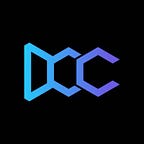What Is Decentralized Credit?
Although we have the illusion of choice in personal financing, for years banks and credit agencies have been taking advantage of their customers. They have done so by colluding to reduce competition and by curbing the free market in order to increase fees for services, including interest on credit. For financial services, we are forced to turn to a few major players that run the show, while looking out for themselves rather than their customers.
Considering the importance of credit in contemporary society and the widespread effect it has on our lives, we should have a system that is easily accessible and that benefits users. Profiteering by banks and credit agencies is only one problem that emerges as a result of centralized systems, which has also led to fragmentation due to intermediaries and information asymmetry.
These centralized systems, where information is stored in one place, have led to security breaches on multiple occasions. Decentralized credit has emerged in response to frustrations with the centralized nature of the traditional banking system. A decentralized credit and banking system will allow users to have control over their finances and will solve the inefficiencies that plague the current system.
What does decentralized credit look like?
Decentralized credit will have a user account system that will be based on a personal DCCID, or a Decentralized Credit Chain ID. Rather than having a credit agency hold on to this information, each user will have direct access to their personal data. In addition, information will be encrypted and will be stored in the cloud for ease of access globally.
Due to its blockchain-based framework, transactions and credit information will be tamper-proof, because all actions will be traceable and easily auditable. The DCCID will allow users to forgo intermediaries such as credit agencies and the expenses and inefficiencies associated with these models.
How is it going to change anything? What are the advantages?
The value of distributed credit will be experienced across multiple aspects of both credit and banking industries. It will not only serve to dismantle the banking oligopoly where a few major banks face little competition, but it will also increase the security of information, efficiency processes (such as risk control), and information transfer. Below are a few of the advantages of implementing decentralized credit.
Easy Access to Personal Information
All users with a DCCID will have access to their credit information at all times. This way, they will no longer have to go through credit agencies such as Transunion or Equifax to have access to their credit reports. All information on the DCCID will be kept in the cloud, which will store and integrate data in various countries, regions and languages. As a result, users will have access to their credit information from around the world.
Better Security
Major data breaches have, in the past, induced chaos in credit and banking services. A recent example is that of Equifax in 2017: personal information, such as Social Security numbers were divulged publicly, shaking the foundation of the agency. This type of breach can only happen when information is kept in a centralized location such as in a credit agency. In a decentralized credit system, information will be stored in multiple locations at once, ensuring higher levels of information security for users.
Fair Rates
A decentralized system will also eliminate profiteering by credit agencies and banks by increasing competition. When there are only a few major players, it is easy to create an alliance that will allow for all companies to increase their profit margins. However, with DCC on the market providing similar services to those of banks and credit agencies, these entities will be forced back into the competitive free market. The diminished power of large institutions will also allow smaller players to re-emerge on the market in an effort to promote social and economic progress.
Increased Efficiency
With DCC on the blockchain, we are automating processes that will allow for increased efficiency and smarter lending decisions. For example, AI will be used for risk control, which will better direct borrowers towards possible lending institutions rather than having them disclose personal information to lenders for which they are ineligible. DCC will also increase the transparency of lending behaviours by creating a credit history report on blockchain. This grants access to all parties that require credit information, while preventing problems such as repeated test borrowing.
These are just a few of the advantages of a decentralized credit system. If you’re interested in knowing more, feel free to read our whitepaper. Decentralized credit will be safer and more accessible to customers, while creating a fairer ecosystem for everyone who wants to take advantage of financial ecosystems worldwide.
Connect with DCC (English):
DCC를 만나보세요 (한국어):
DCC 社群 (中文):
Kênh DCC Việt Nam (Tiếng Việt):
